7 Ways To Optimize The Vegan Diet For Natural Weight Lifting And Muscle Growth [The Ultimate 2023 Guide]
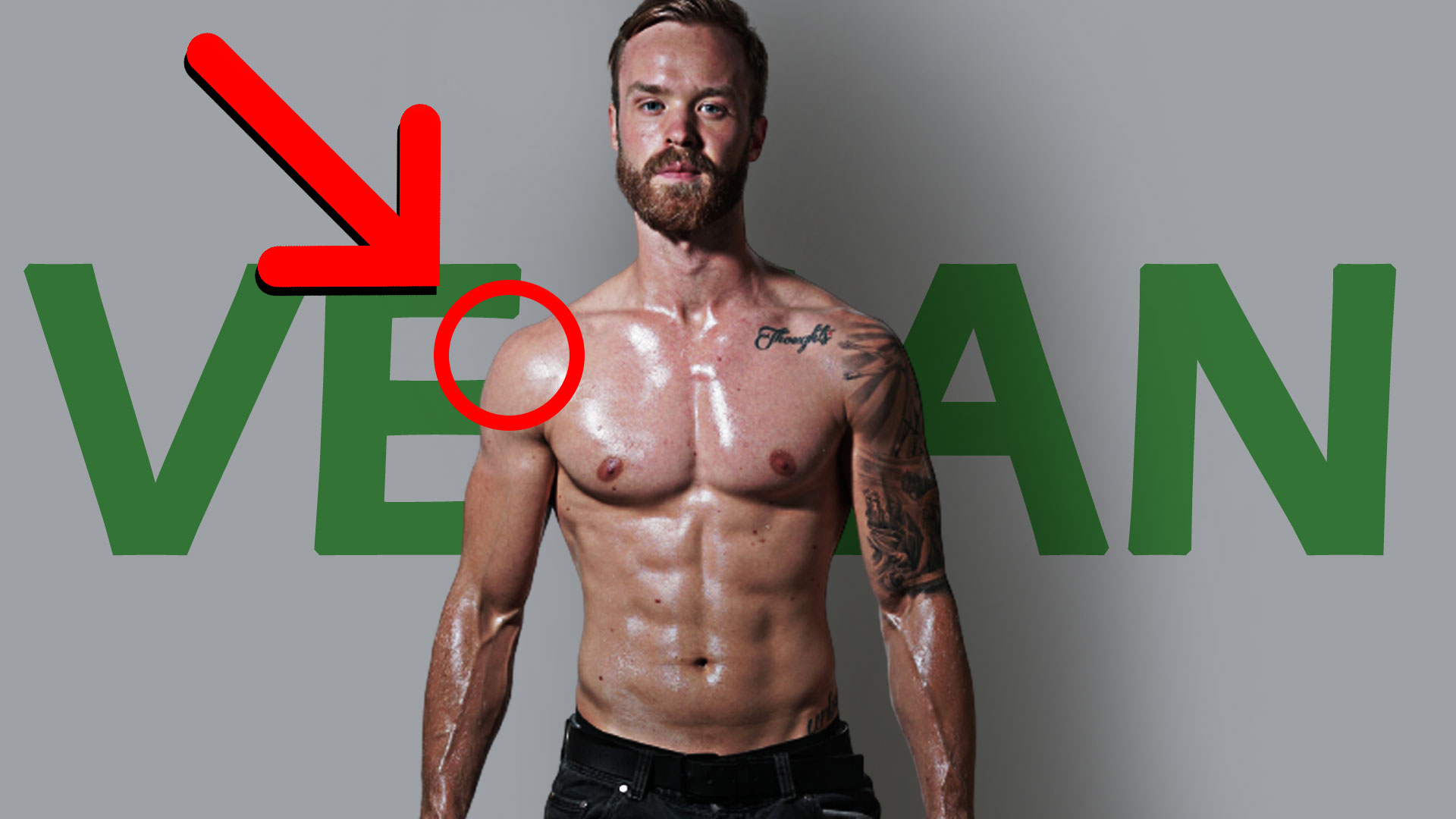
If you’re looking to lift the most weight – and ultimately build the most amount of muscle mass – in the shortest time frame…
… and you’re a fellow vegan…
… then you’ve came to the right place.
Look, the reality is that the vegan diet is superior in many aspects:
- Moral reasons (the animals, and the karma thing)
- Sustainability (the planet and climate control)
- Health (longevity and reduction in chronic disease risk)
Yet muscle growth? Not so.
By default, a vegan diet will not give you the best muscle building results. Instead, you have to learn a few tweaks to optimize your vegan diet so you can achieve your highest weightlifting potential.
In this article, you’ll learn what those tweaks are.
Why should you listen to me? I’m an award-winning vegan personal trainer and a published author. I’ve been vegan for 8 years, trained 1,000 of clients in-person and online and have never used steroids.
Here’s what I’ve learned works best (including the science):
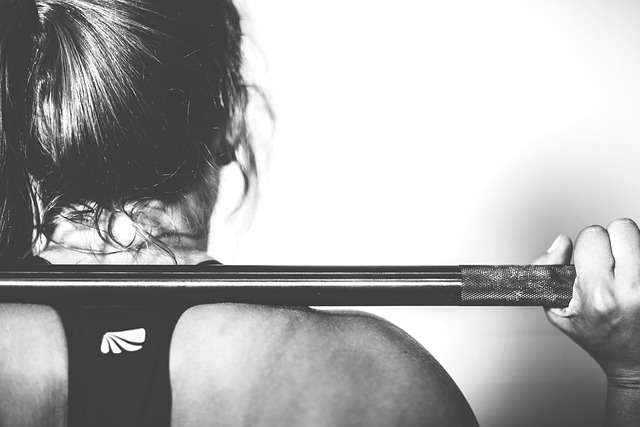
Weightlifting: Keeping The Main Thing The Main Thing
You can have the absolute best diet for muscle building, yet if you do not workout regularly and effectively, you’ll see zero results.
- Fat loss is 80% nutrition and 20% workouts (see an article for that here)…
- Muscle growth is 80% workouts and only 20% nutrition.
We see that in animal studies over and over again. If there is no load on the muscle, the muscle does not grow. [1]
Even if muscles are completely separated from the nerves surrounding them (aka, ‘no mind-muscle connection’) – they still grow if the load is high enough. [2]
While there’s such a thing as a dietary-induced protein synthesis (a fancy way of saying your diet does build muscle to a degree), this is at most 20% of the equation.
In weight loss for example, you can increase the protein intake from 0.9g per kg of body weight – to 1.7g/ per kg of body weight and see zero results in muscle maintenance. [3]
Yet let people during weight loss workout regularly – and they prevent 90%+ of the weight loss associated muscle reduction. [4]
Takeaway: Exercise matters. And in building muscle, it’s the #1 thing.
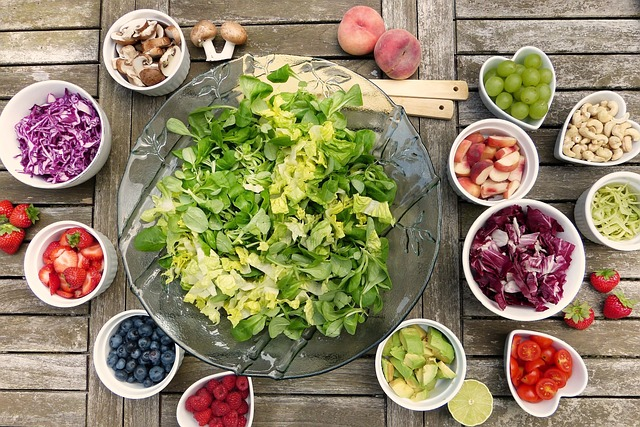
Vegan Diet Weight Lifting: What To Look Out For?
There are 7 ways to optimize a plant-based nutrition for strength training.
This the checklist that I normally go through in my awesome clients that pay me a good chunk of moolah to work with me personally. But in this article, I’ll give it to you for free.
Even better? You can apply these changes today, and see incredible results in the next few weeks and months:
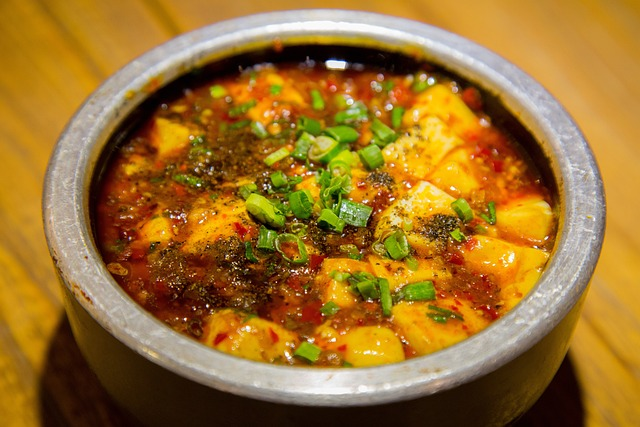
1. Get enough plant-based protein
Yes, you must get enough protein on a vegan diet. Contrary to popular ‘vegan wisdom’, dietary protein is important.
While the recommended daily allowance (RDA) of protein is around 0.9g per kg of body weight, it does make sense to take in more protein if you’re looking to build the most amount of muscle.
Scientifically speaking, 1.6g to 2.2g of protein is sufficient. [5]
Admittedly, animal protein sources typically contains a higher amount of protein per serving. Here are some common animal foods and their protein contents:
- Chicken contains 27g of protein per 100g of food weight.
- Turkey contains 29g of protein per 100g.
- Beef contains 26g of protein per 100g.
- Eggs contains 13g of protein per 100g.
- Milk contains 3g of protein per 100ml.
While most plant sources do not stack up to that degree, some do. Your job as a performance-oriented vegan is to focus on the right high protein vegan foods.
Here are a few common plant foods sorted by the amount of protein per 100g of food weight:
- Plant based protein powders (soy protein) contain 81g of protein per 100g of food weight.
- Spirulina contains 57g of protein per 100g of food weight.
- Chlorella contains 54g of protein per 100g of food weight.
- Nutritional yeast contains 53g of protein per 100g of food weight (twice the amount of chicken!).
- Textured vegetable protein contains 51.5g of protein per 100g of food weight.
- Lupin beans contain 36g of protein per 100g of food weight.
- Lentils (raw) contain 26g of protein per 100g of food weight.
- Seitan contains 25g of protein per 100g of food weight.
- Kidney beans contain 24g of protein per 100g of food weight.
- Almond butter contains 21g of protein per 100g of food weight.
- Pumpkin seeds contain 19g of protein per 100g of food weight.
- Chia seeds contains 16.5g of protein per 100g of food weight.
- Soy milk contains 4.5g of protein per 100g of food weight.
- Brown rice contains 2.6g of protein per 100g of food weight.
- Almond milk contains 1g of protein per 100g of food weight.
Additionally, I like to take 1 scoop of plant-based protein powder after waking up in the morning – and after finishing my workout.
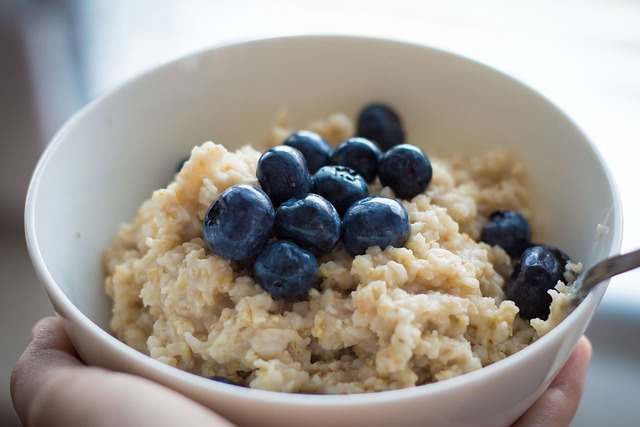
2. Get enough leucine (essential amino acids)
For muscle growth, not only is the total quantity important, but also the intake of specific amino acids – specifically ‘Leucine’.
For optimal, muscle growth purposes this is required: [6]
- Per-meal intake of 20g-25g, so ideally, you have 4 meals with 20-25g+ of protein.
- Per meal intake of 1.8g of Leucine to hit the Leucine threshold (You can imagine ‘Leucine’ as the CEO of the amino acids. If there’s no CEO, there ain’t no proper work getting done.)
As long as these factors are similar in plant and animal proteins, the muscle building response is similar as well.
While the muscle building effect is similar between animal and plant proteins, it’s a bit more complex to hit the Leucine target and the higher protein target on a purely vegan diet.
Plant-based foods tend to have a lower amount of essential amino acids per than animal based foods. So people following vegan diets need to pay special attention to leucine if they’re aiming to build the most muscle mass possible.
An easy way to get enough leucine is to have oatmeal and soy milk in the morning (hits the leucine target). And to have one (or two) protein shake per day that will provide enough protein and the leucine target.
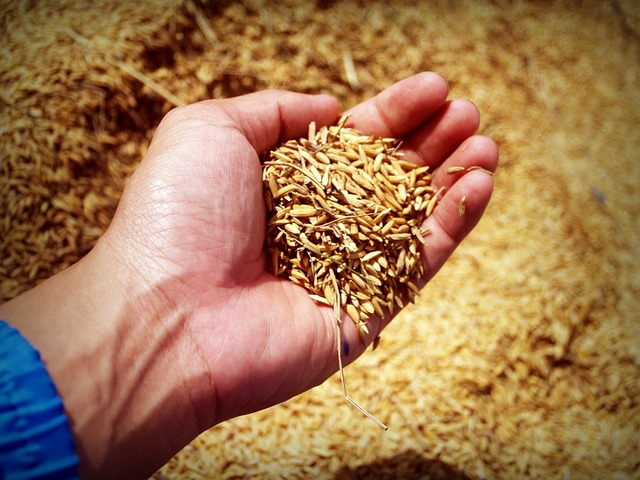
3. Get enough carbohydrates (the #1 sign of a vegan bodybuilding diet)
While protein is important for a healthy nutrition and optimal muscle growth, it is still severely overhyped.
A vegan bodybuilding diet is not defined by its protein content. But by its carbohydrate content.
Your muscles burn carbohydrates during times of exertion. Not protein. [7]
And we’ve previously seen in this article that the #1 thing that matters for muscular growth or strength is not diet, but exercise.
A vegan bodybuilding meal plan should therefore always contain at least the vast majority of the calories from healthy carbohydrates. That means at least 60%+.
That’s why it’s important to get enough protein rich foods – but not too much. Because a higher protein intake always comes at the cost of the other macronutrients, especially carbohydrates.

4. Get enough healthy fats
Another reason why protein should not be overconsumed are healthy fats.
Now, while admittedly fats are the least important of the macronutrients for muscular growth…
… I’d rank the macronutrients in importance as:
- (A lot of) carbohydrates
- (Enough, but high-ish) protein
- (Enough) fat
While fat is least important of the 3 macronutrients…
…. enough fat intake is still crucially important for healthy hormonal function.
In a vegan bodybuilding diet, about 60% of the calories should come from carbohydrates, 20% should come from protein – and about 20% should come from fat.
Those healthy fats should stem from whole foods, including nuts and seeds (not oils and avocado).
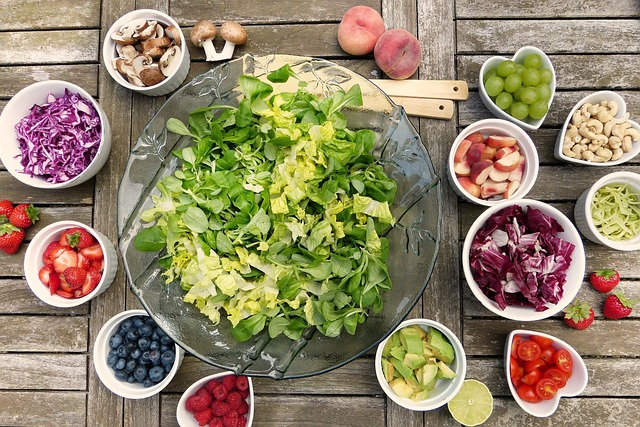
5. Be in a caloric surplus
A higher than normal caloric intake will make achieving your vegan strength and muscle goals much easier.
The reason you want to be in a caloric surplus (in plain English this means: Eat more than usual) is because it will generally make it easier to get the required amount of protein and carbohydrates.
Now the caloric surplus required is not excessive. This is not a free pass to a vegan Ben & Jerry’s every single day.
You want the right amount of caloric surplus. Because if you get too much, well…
… you’re going to get fat.
You want lean muscle mass, not fat. And there’s a great wall of China between being fat and having lean muscle mass.
So the right amount of caloric surplus (based on personal experience) is usually around 200-300 calories per day.
Btw, if you have trouble getting in enough calories: You’ll often have to reduce your fiber intake. Fiber is the #1 component in your food most responsible for your satiety.
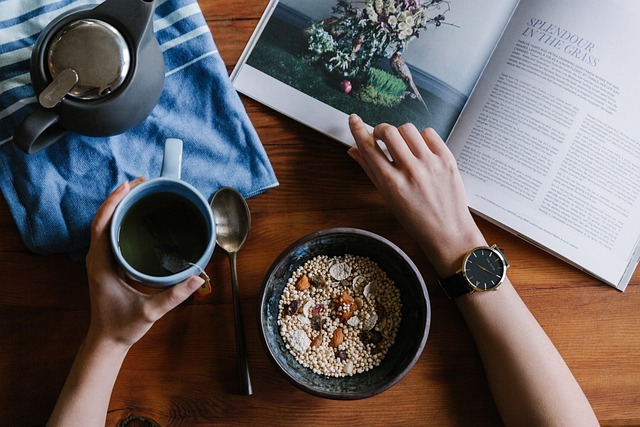
6. Structure your calorie intake by your 24h-clock (Chronobiology)
For gaining muscle on a vegan bodybuilding diet, the question is not only:
- What to eat?
The question is also:
- When to eat?
Your body is a creature of habit. And your body knows exactly, what time it is.
Remember the last time you had a transcontinental flight. You arrive at the destination and you feel odd:
- All the external cues (sunlight, food) – may remind you that you’re at your new destination.
- But you can’t sleep. You feel half-sick. And your digestion doesn’t work.
Welcome to jetlag. Nearly every tissue and organ in our bodies has its own internal clock [8], that needs to adjust to the external cues over time. [9]
For optimal muscle gain, you have to adjust your eating windows to your internal clock. That means: You have to eat when the body wants the resources, not necessarily when it is convenient for you.
Generally speaking, your body (including your muscle cells) want the resources in the morning. Not at night.
Why?
- In the morning our muscles might be especially susceptible to insulin, pulling out the glucose from the breakfast and storing it as glycogen (and then using it later on).
- At night our muscles are less insulin receptive and our blood sugar actually rises twice as high (same meals)!
It all boils down to this: Our bodies just aren’t expecting us to eat when it’s night. [10]
So for optimal muscle growth, get 50%+ of your daily calories in your first meal of the day, about 30% in your 2nd meal – and about 20% in your last meal.
This way you’ll have the maximum amount of resources to recover – and push yourself in the training.

7. Get the right supplements
Proper working out will give you 80% of the results. The previous tips all together will give you 98% of the results…
… yet to fulfill your maximum, natural vegan bodybuilding potential: You’ll need supplements.
There’s no way around it.
Generally speaking, your body does not want to change. Your body does not want to gain muscle – and your body does not want to lose fat.
Instead, it wants to stay exactly where it is.
So… in some way or form you have to strongly incentivize it. No, that’s an understatement: You almost have to coerce your body to change.
If you approach the sport of changing your body with a ‘kid gloves mindset’ – you’ll never ever see results.
To some extent, this has to hurt, this has to be painful – because if it is not, it’s not changing you.
There’s a quote which I love: “Man cannot re-make oneself without suffering, for he’s both the marble and the sculptor.”

The way you facilitate the re-making process and the speed of such, is by using supplements.
The 3 Supplements I Personally Use For Muscle Gain
These are the 3 supplements that I personally use. I’ll add a link below in the text so you can order them as well.
Important: I’m not incentivized to share any of these, as these are no affiliate links. I don’t earn a dime – whether you order them or not. I only earn a dime if you sign up for my legendary coaching here (even my book is absolutely free).
Here are the supplements I’d suggest to stack all the cards in your favor:
1. Vitamin D3
How much? 5,000 IU 1x per day
Why? Helps you build muscle quicker.
2. Creatine:
How much? 5g per day
Why? Helps you push yourself beyond your comfort zone in the training.
PS: Read a controversial article about Creatine here: https://fitvegans.com/stop-taking-creatine-vegan-supplements/
3. Beta Alanine:
How much? 1 small spoon per day
Why? Helps you push yourself beyond your comfort zone in the training.
Link: https://ch.iherb.com/pr/mrm-nutrition-beta-alanine-balance-muscle-ph-7-05-oz-200-g/88800
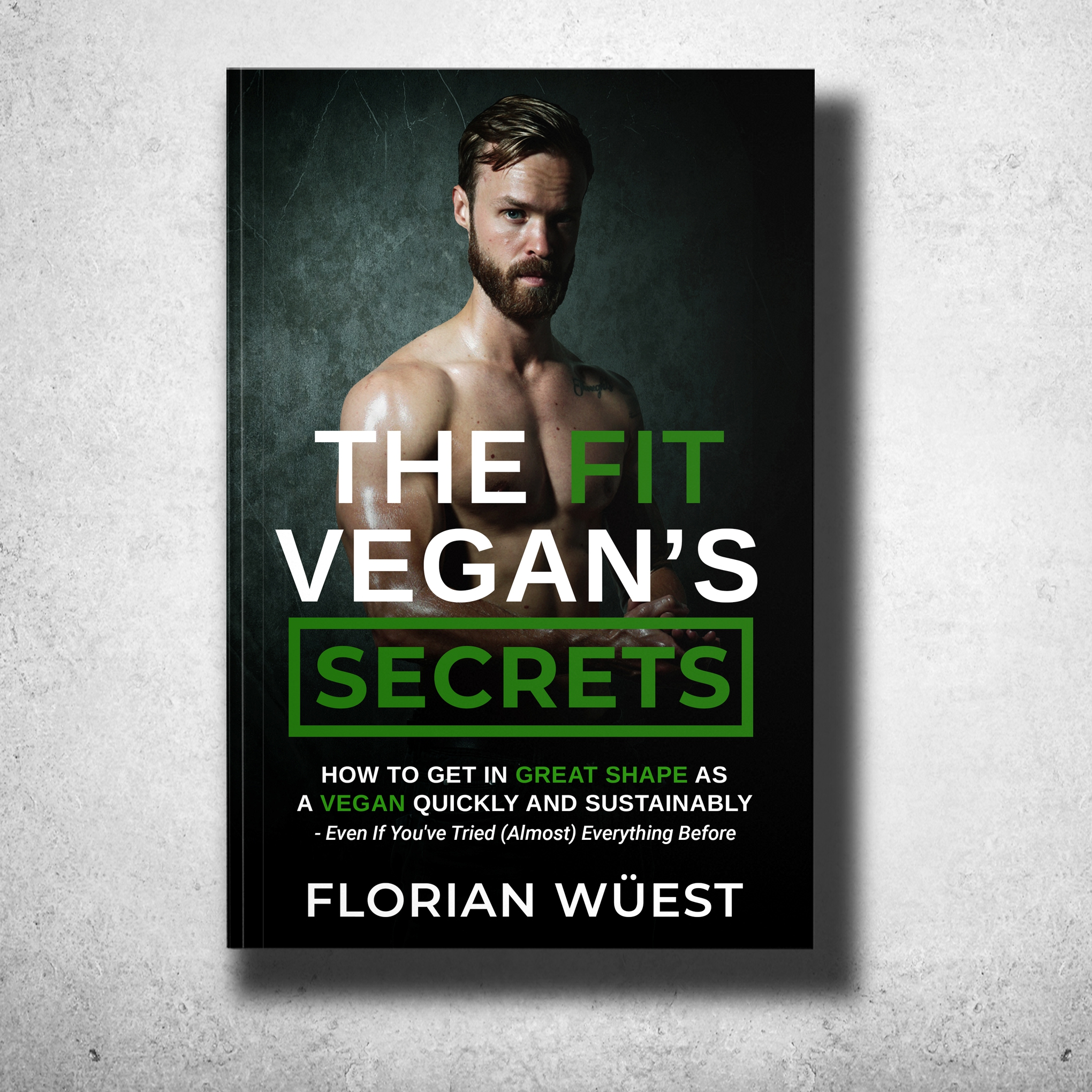
Lastly, do you know what to do yet you can’t get yourself to do what you should do?
Welcome to the club. The reason most people don’t achieve their fitness results is because the wishing is easier than the doing.
You can have the best plan and strategy there is. But if you can’t get yourself to follow through, the plan is worth…
… *drum roll*…
… nothing.
Fitness is less about knowing what to do. And more about doing what you know you should do.
That’s where ‘The Fit Vegans Secrets’ comes in:
- It’s a short, 109-page book that has already been downloaded 1,600+ times. People love it.
- It’s controversial, persuasive, entertaining – and engineered to give you massive benefits when you read through it in a short afternoon…
… because it helps you finally do what you know that you should do in regards to health and fitness. It’s almost like a cheat-code, or magic.
Even better? It’s absolutely free for a limited time.
You can get the book here: https://fitvegans.com/secrets/
References:
[1] Progressive stretch overload of skeletal muscle results in hypertrophy before hyperplasia: https://pubmed.ncbi.nlm.nih.gov/8226539/
[2] Mechanism of compensatory hypertrophy in skeletal muscle of the rat.: https://www.sciencedirect.com/science/article/abs/pii/0014488671902482
[3] Protein intake and lean body mass preservation during energy intake restriction in overweight older adults: https://pubmed.ncbi.nlm.nih.gov/26471344/
[4] Resistance Training Prevents Muscle Loss Induced by Caloric Restriction in Obese Elderly Individuals: A Systematic Review and Meta-Analysis: https://pubmed.ncbi.nlm.nih.gov/29596307/
[5] How much protein can the body use in a single meal for muscle-building? Implications for daily protein distribution: https://jissn.biomedcentral.com/articles/10.1186/s12970-018-0215-1
[6] How much protein can the body use in a single meal for muscle-building? Implications for daily protein distribution: https://jissn.biomedcentral.com/articles/10.1186/s12970-018-0215-1
[7] The Role of Skeletal Muscle Glycogen Breakdown for Regulation of Insulin Sensitivity by Exercise: https://www.ncbi.nlm.nih.gov/pmc/articles/PMC3248697/
[8] Circadian clocks, food intake, and metabolism: https://pubmed.ncbi.nlm.nih.gov/23899596/
[9] Jet lag: Heuristics and therapeutics: https://www.ncbi.nlm.nih.gov/pmc/articles/PMC6069654/
[10] From Biologic Rhythms to Chronomes Relevant for Nutrition: https://www.ncbi.nlm.nih.gov/books/NBK232447/